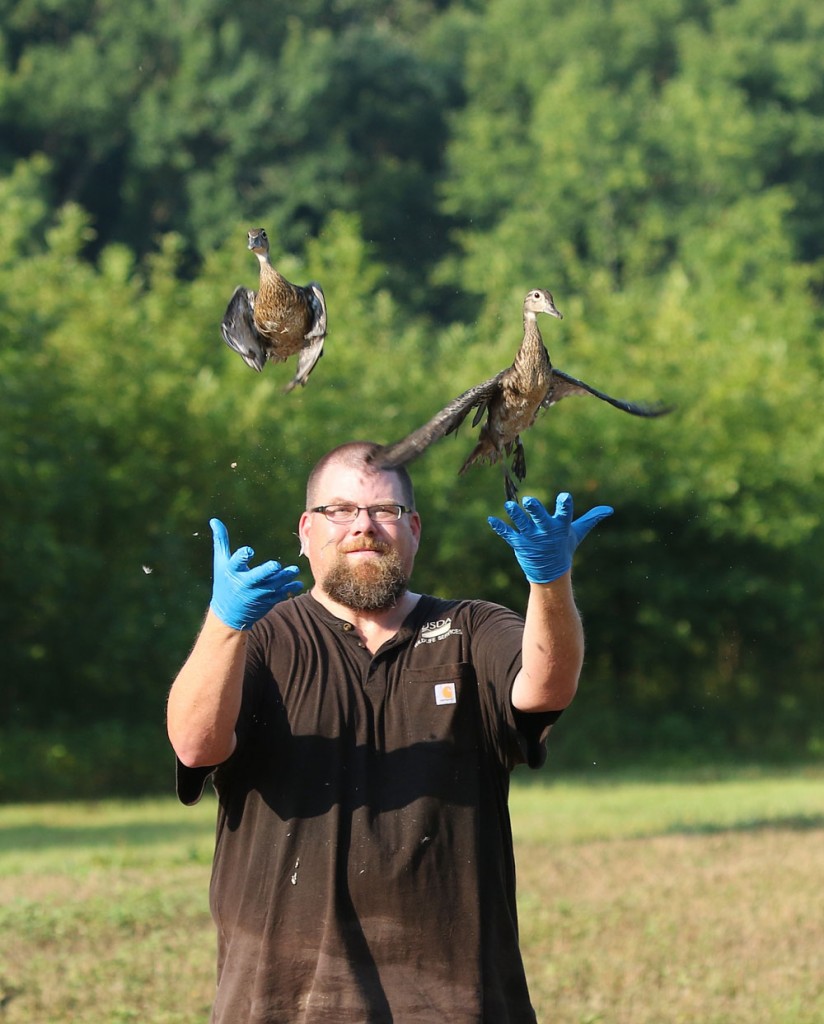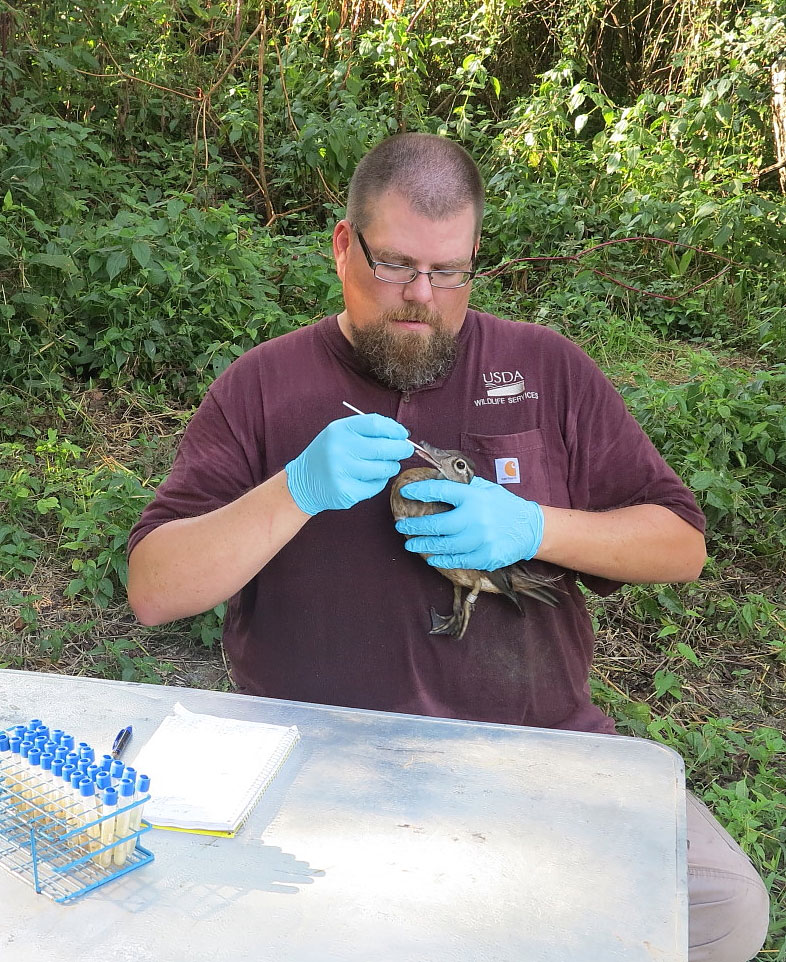University of Arkansas at Little Rock graduate named wildlife disease biologist of the year
A University of Arkansas at Little Rock graduate was honored as the 2016 wildlife disease biologist of the year by the U.S. Department of Agriculture.
Clint Turnage, a 1999 UALR graduate who majored in biology with an emphasis on fisheries and wildlife, received the award in June from the USDA Animal and Plant Health Inspection Service Wildlife Services Division.
The organization honored Turnage for his knowledge, professionalism, initiative, dedication and overall enthusiasm for his wildlife work.
“Working as a wildlife disease biologist for Wildlife Services has been a huge blessing in my life,” Turnage said. “My lifelong passions have always been wildlife and the great outdoors. I’m so grateful that my position with (Wildlife Services) has allowed me to enjoy these on a regular basis.”
As a wildlife disease biologist, Turnage travels throughout Arkansas conducting disease surveillance. He collects samples from a variety of wildlife — from coyotes to waterfowl — in an effort to detect diseases that might affect animals or people. Some diseases, such as the highly pathogenic avian influenza, have the potential to be devastating at a local or national level.
Turnage spends much of his time sampling feral swine for diseases such as classical swine fever, pseudorabies, swine brucellosis, influenza A, leptospirosis, toxoplasmosis, and trichinosis.
Turnage is one of about 23 wildlife disease biologists from across the U.S. who work for the agency’s National Wildlife Disease Program.

“It is a demanding job,” said Dr. Tom Deliberto, who is the assistant director of the National Wildlife Research Center in Fort Collins, Colo. Deliberto said that these biologists are not only disease experts, but they also serve as liaisons between Wildlife Services and other federal, state, and local agricultural and health agencies.
Turnage is also a member of the Arkansas One Health Committee, whose purpose it is to promote cohesion between agencies responsible for human, wildlife and domestic-animal health. Turnage is the primary wildlife expert on the committee, and he offers his insights as a biologist.
He also assists private individuals with wildlife damage issues and stands at the ready to respond to wildlife emergencies such as Hurricane Katrina and the 2010 BP oil spill.
Following his graduation from UALR, Turnage began his career as a research associate with the University of Tennessee, working with black bears on White River National Wildlife Refuge in Arkansas.
Turnage then spent three years working in a brucellosis laboratory as a technician for USDA Veterinary Services. Anxious to work outside again, Turnage accepted a position with the USDA Wildlife Service as a biologist. Turnage has been with the Wildlife Service for the past nine years and has truly found his passion.
“When I was a little kid, 4 or 5 years old, I would walk around and pick up caterpillars and frogs,” he said. “It’s always been there, my fascination with living things.”
Thurman Booth, Turnage’s supervisor said, “During my 50-year career in Wildlife Services, I have never encountered nor supervised an employee that had more positive enthusiasm about his work.”
